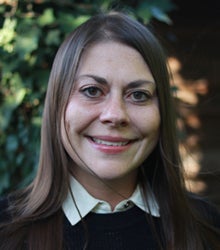Dr. Ehrlich received her Ph.D. from Cornell University in 2017. Before joining the faculty at University of Oregon, she taught at Berea College, Colorado College, and Cornell University.
Her current book project, I Modelli di Virtù: Mythological Heroes in the Art of Fifteenth-Century Florence, examines the role of Greco-Roman mythological heroes in the visual construction of the heroic ideal. She argues that changing notions of virtue and a robust culture of exemplarity inherited from ancient traditions influenced the reception of these figures and account for their reemergence at this time. By employing semiotics and reception theory, her research situates these depictions within the social fabric of Florence and intervenes in debates that have questioned reliance upon texts and humanistic discourses in the analysis of Renaissance art.
She is also working on a second research project that brings sixteenth- and seventeenth-century European mythographies into conversation with illustrated manuscripts created in New Spain. In particular, she is interested in how representations of religious pantheons, both ancient and indigenous, contributed to reimagining collective histories and identities. In both her research and teaching, she positions early modern art within a global context that takes into consideration the lasting impacts of colonization and the intricate networks of exchange that influenced art production and patronage in this era.
Her work has been supported by grants and fellowships, including the James Loeb Fellowship for the Classical Tradition in Art and Architecture and appears in Source: Notes in the History of Art and The Burlington Magazine.
She teaches courses geared toward both undergraduate and graduate students that include surveys and special topics in Renaissance and Baroque art and the arts of Latin America, as well as methods in art history.

